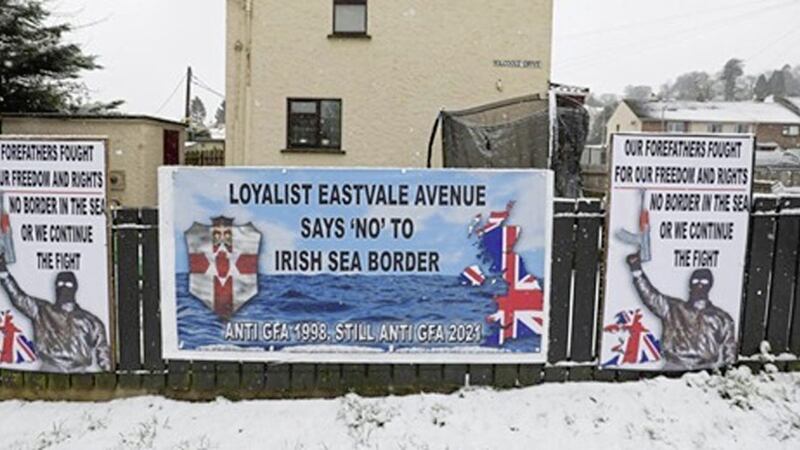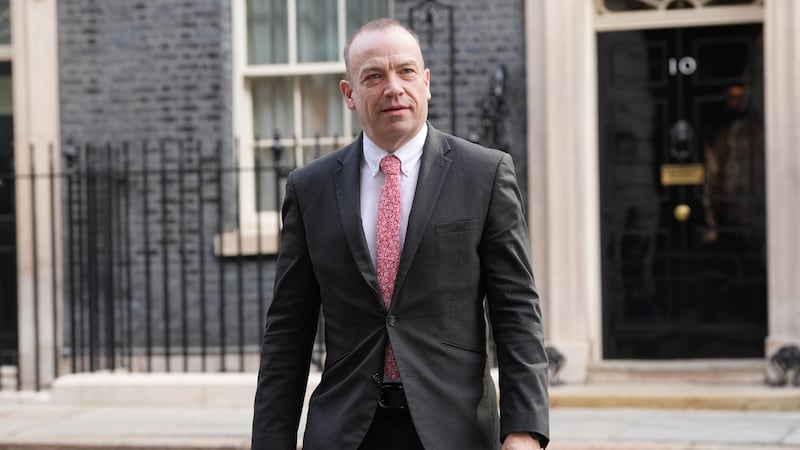THE letter from loyalists withdrawing support for the Good Friday Agreement was timed to appease hardline factions who threatened to target politicians seen to be supportive of the Northern Ireland Protocol.
The strongly-worded letter to British prime minister Boris Johnson was sent by the Loyalist Communities Council, which represents the views of the UDA, UVF and Red Hand Commando.
It claimed the protocol imposing Brexit checks at Irish Sea ports prioritised nationalist opposition to a hard border in Ireland over unionist concerns about barriers between the north and Britain.
"This renders it in variance with the agreement it purports to uphold and undermines the basis on which the Combined Loyalist Military Command agreed their 1994 ceasefire and subsequent support for the Belfast Agreement," LCC chairman David Campbell wrote.
"Accordingly. I have been instructed to advise you that the loyalist groupings are herewith withdrawing their support for the Belfast Agreement and its institutions until our rights under the agreement are restored."
Read more: Analysis - Loyalist letter should be seen as negotiating tactic (premium)
It is understood the umbrella group wrote the letter as part of attempts to appease hardline factions of loyalism who wanted to escalate opposition to the protocol into direct action against politicians and political offices.
Tensions have been rising since the protocol came into effect on December 31.
Chief Constable Simon Byrne said yesterday he does not believe loyalists are likely to return to violence.
"Our initial assessment is that this is a political move," he told Policing Board.
"We are prudently looking at an assessment of what that means in terms of a policing response or indeed any need to change our posture over the weeks ahead."
DUP leader Arlene Foster said she did not have advance notice of the move, despite meeting with the LCC last week.
"It's not surprising to me after having met the LCC this day last week they were very clear about the difficulties with the protocol," she said.
"I do welcome the fact that they have said they will use peaceful and democratic means, I very much welcome that.
"It's so important that we deal with matters through politics and through the constitutional way of dealing with issues, whether that's through politics or through the courts or whatever. I think that that is to be welcomed."
However, Deputy First Minister Michelle O'Neill said the loyalist groups should no longer exist.
"I think the question that needs to be answered is, 23 years after the Good Friday Agreement, why loyalist paramilitary groups still exist, way they're still carrying out organised crime, racketeering and extortion, holding communities to ransom?" she said.
"I think everybody in political leadership has a responsibility to encourage and to tell these groups to leave the stage. There is no place for them in today's society."
Read more: Analysis - Loyalist letter should be seen as negotiating tactic (premium)








